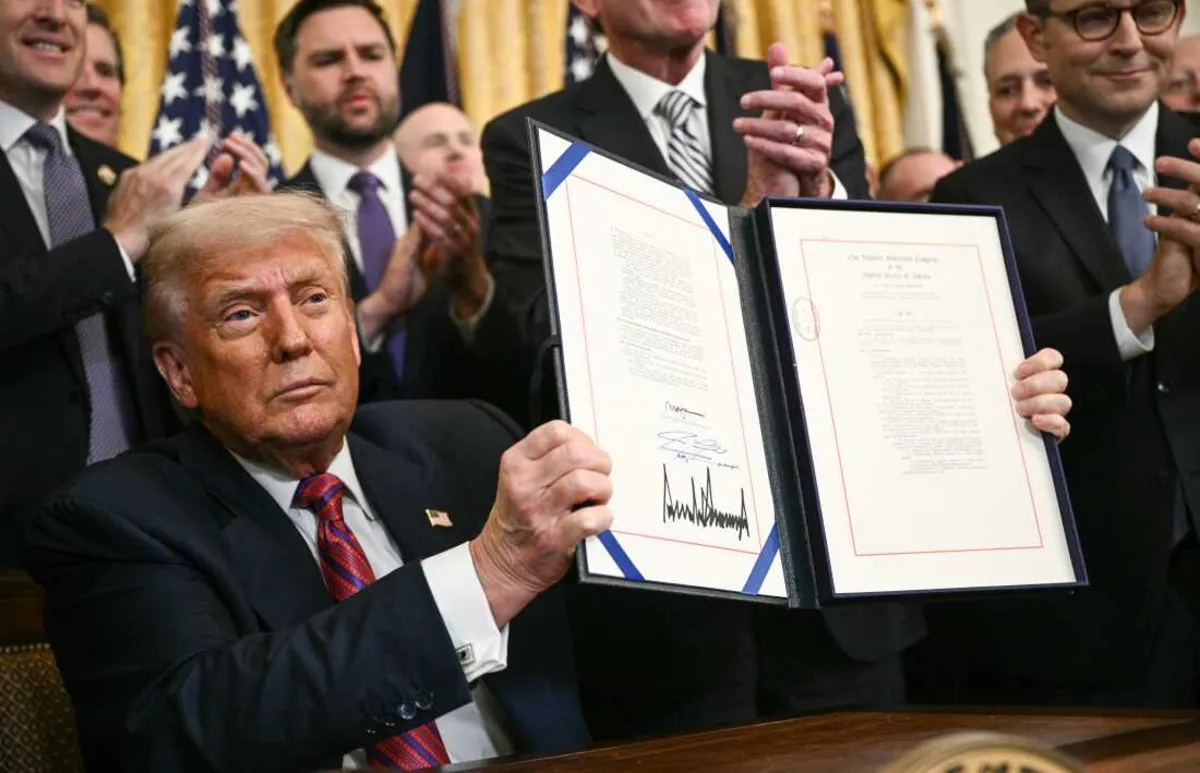
For years, the U.S. government maintained a cautious stance towards cryptocurrencies, viewing them as too risky for the average American and potentially hazardous for the nation’s financial system. However, this perspective has dramatically changed. In a landmark vote earlier this week, the House of Representatives approved the first significant cryptocurrency legislation in U.S. history, marking a pivotal moment in the government’s approach to these digital currencies.
Following the vote, the overall market valuation of cryptocurrencies surged to a record $4 trillion, reflecting the enthusiasm and optimism within the sector. President Trump celebrated this historic achievement during a ceremony on Friday, where he signed the bill into law, proclaiming, "This afternoon, we take a giant step to cement American dominance of global finance and crypto technology as we signed the landmark Genius Act into law." This legislation introduces new regulations, particularly focusing on a promising segment of the crypto market known as stablecoins.
The passage of the Genius Act sets the groundwork for additional laws, with two other crypto-related bills currently advancing through Congress. Notably, the CLARITY Act, which was also approved by the House, aims to transfer regulatory oversight of the crypto sector to the Commodity Futures Trading Commission (CFTC). This potential shift in regulatory power has sparked concerns among critics about a reduction in oversight, with many vowing to oppose it vigorously in the Senate.
For supporters of cryptocurrency, this week represents a victory for financial innovation. Proponents argue that digital currencies are the future of finance, despite acknowledging the existence of less reputable segments within the sector, such as meme coins. They point to stablecoins as a prime example of how digital currencies can provide genuine value. Each stablecoin is pegged to traditional currencies, ensuring that if you purchase $1 in stablecoin, the issuer holds an equivalent $1 in reserve. This backing gives stablecoins a reputation akin to cash, facilitating instantaneous global transactions without the burdensome fees associated with traditional banking.
Despite the potential benefits, critics of the Genius Act raise alarms about the adequacy of its protections. While the legislation mandates that stablecoin companies maintain proper reserves and adhere to anti-money laundering regulations, some argue that these provisions are insufficient and overly influenced by the crypto industry’s lobbying efforts. The crypto sector has invested over $100 million in congressional campaigns, raising concerns about the implications for consumer protection.
Amanda Fischer, policy director for consumer advocacy group Better Markets, expresses skepticism, stating, "It's all hype and there's not much 'there there.' There are certainly issues in the current payment system, but this bill does not solve them and could exacerbate problems that may ultimately harm consumers and the economy."
On the other hand, proponents of the Genius Act defend its provisions, arguing that it establishes clear standards applicable to both stablecoin issuers and traditional banks. Dante Disparte, chief strategy officer for Circle, a leading stablecoin issuer, argues, "You wouldn't have had 102 Democrats voting alongside Republican counterparts if this bill was going to fail basic consumer protection tests." He believes that the Genius Act represents one of the most significant advancements in financial regulation in decades.
With the Genius Act signed into law, the crypto sector now turns its attention to the CLARITY Act. This bill seeks to reduce the authority of the Securities and Exchange Commission (SEC), which has been viewed as an adversary to the crypto industry under the Biden administration. The SEC has enforced strict compliance rules, targeting crypto companies and even contributing to the conviction of high-profile figures like former FTX CEO Sam Bankman-Fried.
Proponents of the CLARITY Act argue that the current regulatory environment is stifling innovation in the crypto space. However, critics warn that reducing oversight may lead to increased risks for consumers and the financial system as a whole. Mark Hays, associate director for cryptocurrency and financial technology at Americans for Financial Reform, cautions, "We’re waging an uncontrolled experiment on our financial system using a technology that hasn’t yet delivered on its promises."
In conclusion, the passage of the Genius Act marks a significant turning point in U.S. cryptocurrency regulation, signaling a willingness to embrace digital currencies while also sparking vigorous debate about the implications for consumer protection and financial stability. As the crypto industry prepares for the next legislative battle with the CLARITY Act, the landscape of digital finance is poised for transformative change.